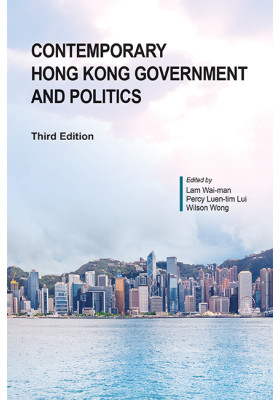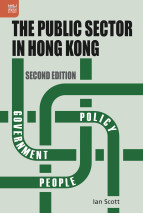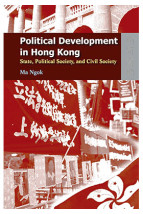Contemporary Hong Kong Government and Politics, Third Edition
(當代香港政府與政治,第三版)
ISBN : 978-988-8842-87-2
August 2024
468 pages, 6″ x 9″, 9 figs.; 5 charts and 27 tables
- HK$295.00
Ebooks
Also Available on
In the third edition of Contemporary Hong Kong Government and Politics, Lam Wai-man, Percy Luen-tim Lui, Wilson Wong, and various contributors provide the latest analyses in many aspects of Hong Kong’s government and politics, such as political institutions, mediating institutions, and political actors. They also discuss specific policy areas such as political parties and elections, civil society, political identity and political culture, the mass media, and public opinions after the Umbrella Movement in 2014. The book also evaluates the latest developments in Hong Kong’s relationship with Mainland China and the international community. This new edition offers an up-to-date and comprehensive analysis of the main continuities and changes in the above aspects since 2014. This volume will help its readers grasp a basic understanding of Hong Kong’s political developments in the last ten years.
“Contemporary Hong Kong Government and Politics provides an accessible, up-to-date, even-handed, evidence-based, and resource-rich account of Hong Kong’s political institutions, civil society, policy environment, and the broader political context of the HKSAR. Written by experts, the book is essential reading for academics, students, and the interested public.”
—John P. Burns, University of Hong Kong
“The system of government and politics in Hong Kong has entered a new order. As institutional adaptations evolve, some previous analytical perspectives may have become contentious, and new frames called for. This new edition takes up the challenging task of explaining the past trajectory and conjecturing the future at a critical juncture of transition.”
—Anthony B. L. Cheung, Education University of Hong Kong








